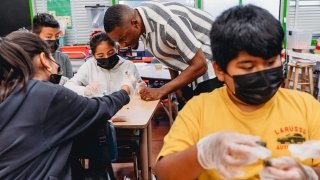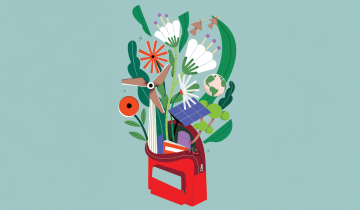The USC Rossier School of Education has partnered with the Los Angeles Unified School District (LAUSD) to offer a teacher preparation program designed to support urban school districts in Los Angeles while advancing the careers of teachers.
The Teacher Preparation Residency is available to eligible students from USC Rossier’s Master of Arts in Teaching (MAT) master’s program who embody the school’s mission to advance educational equity and reflect the diversity of the communities of LAUSD. Selected candidates will receive a $42,000 scholarship from USC Rossier, and a $20,000 living stipend from LAUSD. The combination of the scholarship and the living stipend is equivalent to the entire cost of tuition for the MAT program.
“We are committed to addressing long-standing inequities in schools,” said USC Rossier Dean Pedro Noguera. “The Teacher Preparation Residency allows us to partner with the nation’s second-largest school district to target some of the most under-served areas of education. Our goal is to draw on the talent and diversity of our Master of Arts in Teaching students to support the needs of our K-12 community.”
The MAT program is a 28-unit teacher preparation program in which students simultaneously obtain their master’s and California teaching credential in their chosen area of interest. Additionally, students have the opportunity to complete an Education Specialist Credential and Bilingual Authorization for Spanish Certificate within the 28-unit program.
Noguera’s three educational initiatives
The Teacher Preparation Residency is one of three initiatives established by Noguera when he was installed as Dean in 2020. In addition to the Teacher Preparation Residency, Noguera is leading A New Vision for Schools (and Why Now Is the Time), an ongoing project focused on addressing the social and emotional needs of children in schools, and making learning more stimulating, engaging and equitable. A third initiative, The Democracy Project, seeks to improve civic education and engagement among students.





